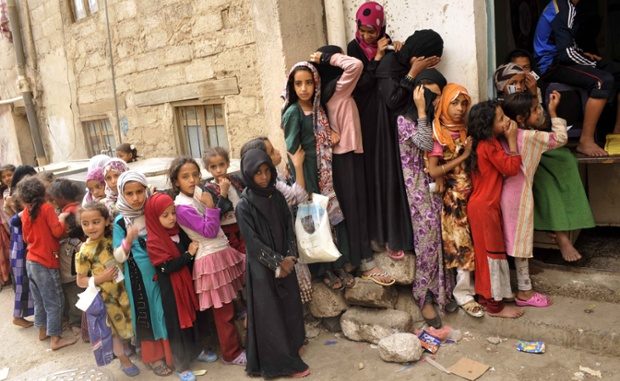
Twenty million Yemenis, are in urgent need of food, water and medical aid. That is almost 80% of the population.
Aid agencies have said that the humanitarian disaster has been dramatically worsened by a naval blockade imposed by an Arab coalition with US and British backing.

BYPASS THE CENSORS
Sign up to get unfiltered news delivered straight to your inbox.
You can unsubscribe any time. By subscribing you agree to our Terms of Use
Latest Video
The Guardian reports: Washington and London have quietly tried to persuade the Saudis, who are leading the coalition, to moderate its tactics, and in particular to ease the naval embargo, but to little effect. A small number of aid ships is being allowed to unload but the bulk of commercial shipping, on which the desperately poor country depends, are being blocked.
Despite western and UN entreaties, Riyadh has also failed to disburse any of the $274m it promised in funding for humanitarian relief. According to UN estimates due to be released next week 78% of the population is in need of emergency aid, an increase of 4 million over the past three months.
The desperate shortage of food, water and medical supplies raises urgent questions over US and UK support for the Arab coalition’s intervention in the Yemeni civil war since March. Washington provides logistical and intelligence supportthrough a joint planning cell established with the Saudi military, who are leading the campaign. London has offered to help the Saudi military effort in “every practical way short of engaging in combat”.
On western urging, Riyadh had promised to move towards “intelligence-led interdiction”, stopping and searching individual ships on which there was good reason to believe arms were being smuggled, and away from a blanket policy of blocking the majority of vessels approaching Yemeni ports. But aid agencies and shipping sources say there is little sign of any such change. UN sources say that only 15% of the pre-crisis volume of imports is getting through, and that the country depends on imports for nine-tenths of its food.
“There are less and less of the basic necessities. People are queueing all day long,” said Nuha Abdul Jabber, Oxfam’s humanitarian programme manager in the Yemeni capital, Sana’a. “The blockade means it’s impossible to bring anything into the country. There are lots of ships, with basic things like flour, that are not allowed to approach. The situation is deteriorating, hospitals are now shutting down, without diesel. People are dying of simple diseases. It is becoming almost impossible to survive.”
In April, Saudi Arabia pledged it would completely fund a $274m UN emergency humanitarian fund for Yemen, but so far none of the money has been transferred to the UN Office for Coordination of Humanitarian Affairs. Riyadh is nonetheless insisting upon the right to decide which aid workers can enter Yemen.
At Al Hudaydah on Yemen’s west coast, the only major port still functioning, a trickle of humanitarian food supplies is arriving on a handful of aid ships allowed through the naval blockade each week, but many more ships are being turned away or made to wait many days to be searched for weapons.


